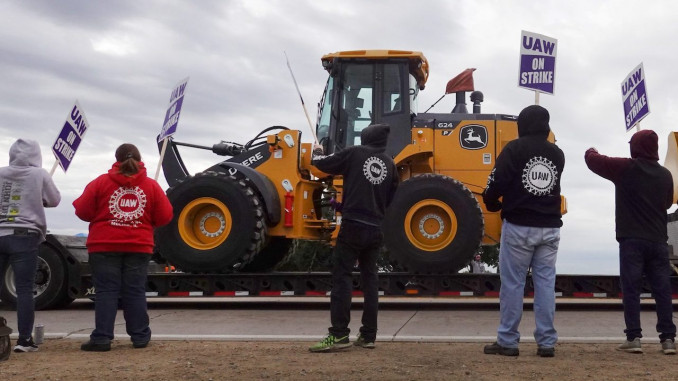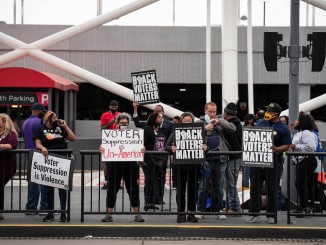
More than 10,000 workers at John Deere, one of the largest farm equipment manufacturers in the U.S., went on strike last week at more than a dozen plants in Illinois, Iowa, and Kansas — the first major walkout at the company in over three decades.
Deere workers had voted for a temporary extension of the current contract earlier this month. Their union, United Auto Workers (UAW), had reached a proposed contract (or “tentative agreement”) last week on a new six-year contract with the company. However, with a 90% voter turnout, Deere workers overwhelming rejected the proposed contract in a ratification vote (90% voted against it).
The rejected contract would have re-implemented the cost-of-living adjustment — removed during the last contract negotiations — as well as a total pay raise of 11% over six years. Nonetheless, the workers rightfully argue that these increases do not keep up with the current 5.4% national inflation rate and the rising cost of living for working people. Additionally, many Deere workers are demanding an end to the company’s 1997 two-tier retirement benefit system which gives reduced health and pension benefits to anyone hired after that year. Instead, the proposed contract would have added a third tier by making new hires ineligible for the company’s pensions altogether and offering them a less beneficial 401(k) plan.
Instead of accepting their conditions, 99% of Deere workers voted to go on strike. And they have every reason to — the company reported $1.79 billion in profits this year so far, its most profitable year yet, and the CEO received a 160% salary increase during the pandemic! It remains to be seen what the outcome of the Deere strike will be, but so far the workers are determined to stand up for themselves and fight back.




